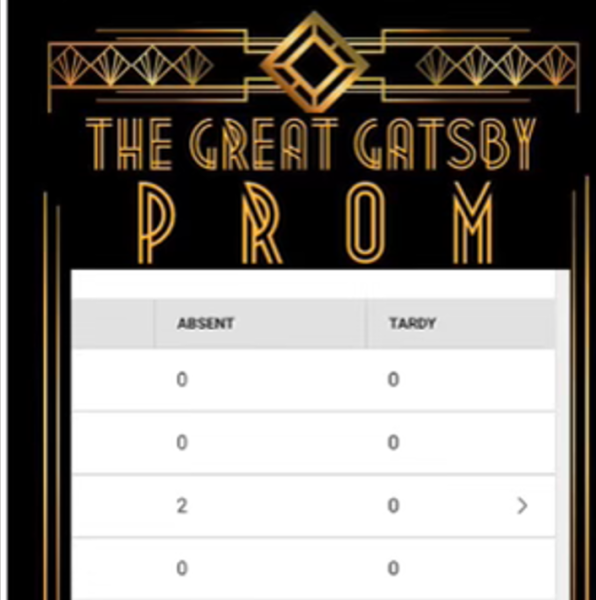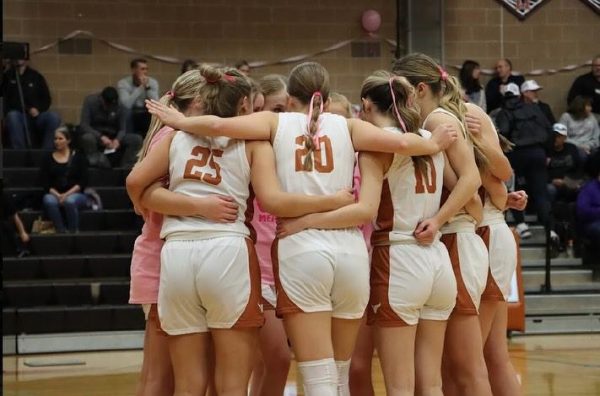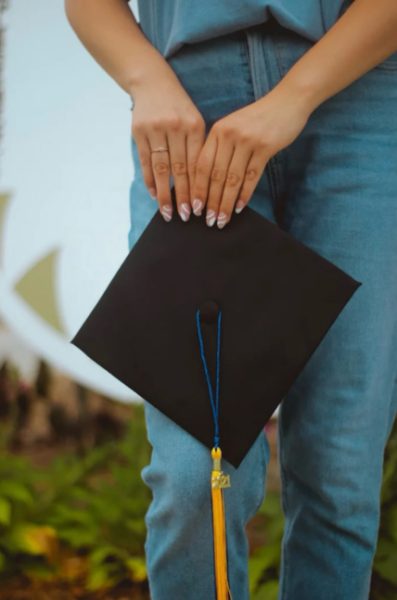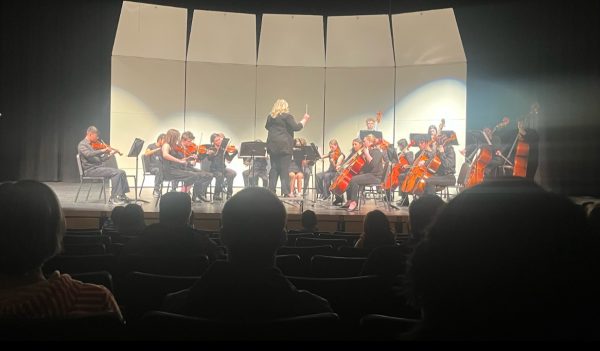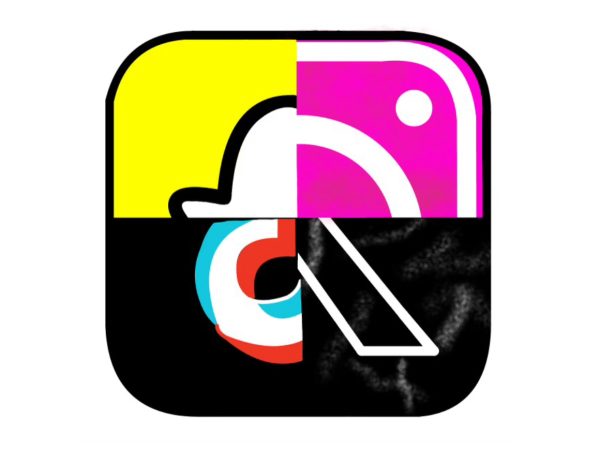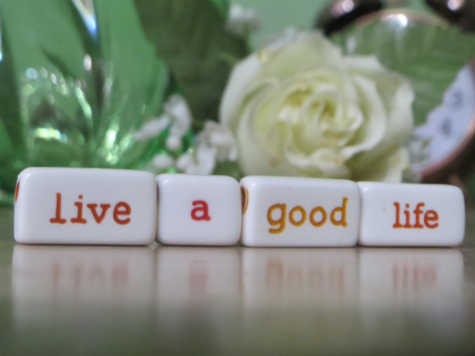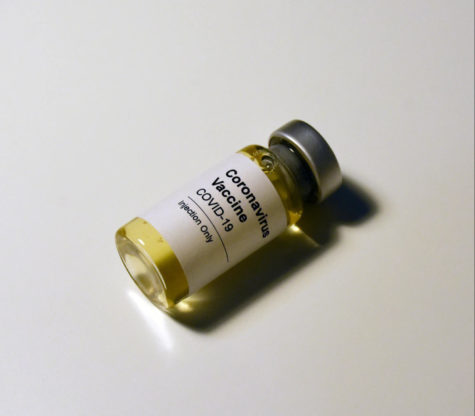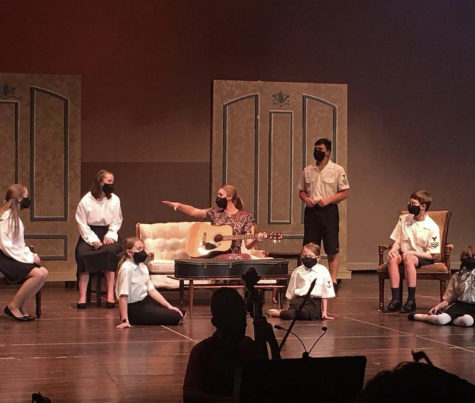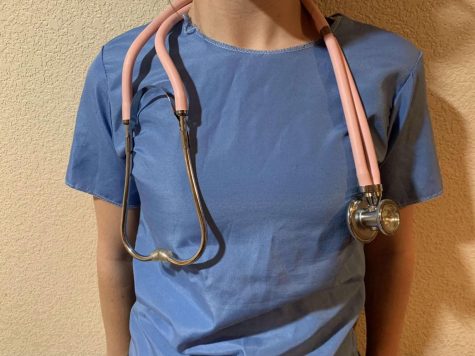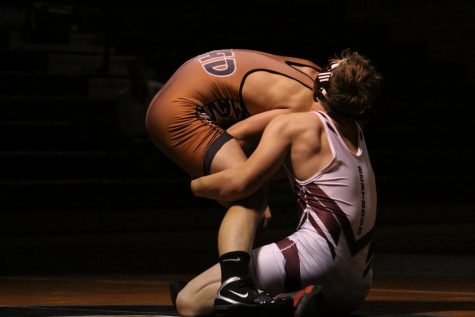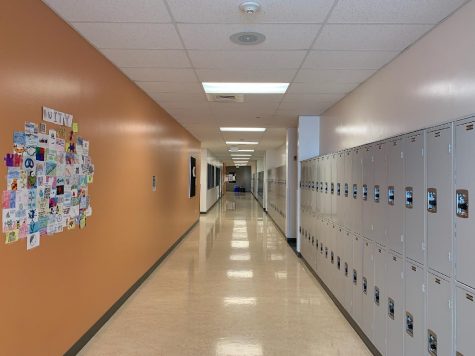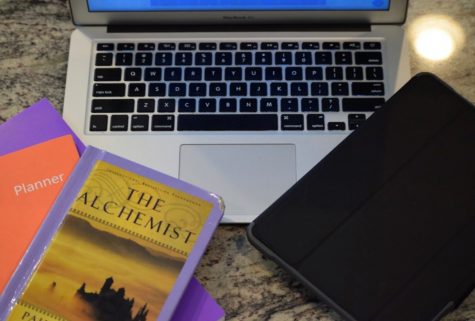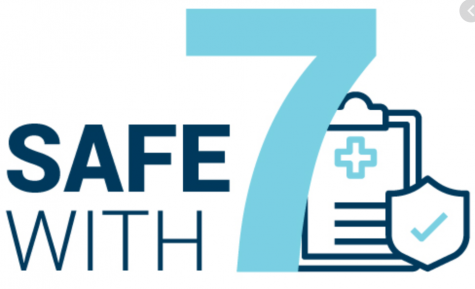The COVID-19 Pandemic revealed flaws in our government and economy, damaged mental health, and took away motivation, but it also showed us how to come together (Opinion)
In some ways, this pandemic got the best of America, but in other ways, it strengthened us and taught us important life lessons
The COVID-19 pandemic has been hard on all of us, and it’s important to reflect on what happened this past year.
The pandemic hit us out of nowhere. Lockdown was officially put into place about one year ago, and we never could have known how much this virus would affect our daily lives as well as our futures. As a way to reflect on how the virus impacted our future in positive and negative ways, I believe it is important to address and discuss the things that have changed. The pandemic has taught us a lot about ourselves, our communities, and our country as a whole.
I think at least some of us recognize and acknowledge that flaws in our government and how they handle situations were revealed during this time. Due to the virus, schools were pushed to shut down, and students and teachers were all forced into a way of learning that — at least at first — wasn’t working. I do acknowledge that teachers and staff tried their best to personally relieve some of the difficulties for students, and I do acknowledge that shutting down schools was a result of the virus, not of a corrupt public education system. However, being pushed into such hasty and detrimental action may have not been the best choice.
At the beginning of the pandemic, we learned that — if I’m being brutally honest — sometimes the government doesn’t necessarily care a whole lot about children’s education. Even though this is my personal opinion, it is heavily supported by government action (or lack thereof) during the last year.
It wasn’t necessarily bad for the first few weeks transitioning from Spring Break of last school year (2019-2020). But once school was cancelled until the end of the year and no one put in place mandatory interaction classes, most kids didn’t do a whole lot of schoolwork — if any. Countless students felt hopeless and didn’t get the full knowledge they needed for that time. But instead of being sympathetic and understanding, a lot of officials continued to place unnecessary pressure on young students who were deeply struggling. Overwhelming end-of-the-week assignments with little to no lessons or teacher-student interaction made certain concepts confusing. Harsh views towards students’ personal lives made it difficult to work towards coping with their internal stresses.
Unfortunately, we learned through the pandemic that the government and American citizens have a hard time coming together to help each other through a crisis as difficult as this. This was somewhat similar to how the government reacted during the Great Depression in the 1930s and 1940s, when the initial administration (including President Herbert Hoover) did little to help Americans in need. I believe this is best explained by history.com when they say, “As the Depression deepened, Hoover failed to recognize the severity of the situation or leverage the power of the federal government to squarely address it.”
Instead of seeing the impact on the daily lives of individual Americans throughout this pandemic, we chose to obsess over the economy and politics. Now, Congress has passed three COVID Relief bills. The first one was the CARES act that gave $1,200 to struggling individuals, $2,400 to struggling couples, and a $500 bonus towards those needing unemployment benefits. The second one came about nine months later after a lengthy debate over how much the checks should give to Americans. Some in the Senate and in the House wanted to give Americans $600 stimulus checks while others wanted to give $2,000 stimulus checks. Why did we feel the need to fight over giving money to those who really need it? To me, that is not a question that needs to be debated. People were hurting.
President Joe Biden promised to give $2,000 checks during this pandemic once he became President of the United States. About a month and a half after Biden became President, the Senate passed the third bill, giving $1,400 checks to struggling Americans. It wasn’t $2,000, but at least it was something. Why did we make struggling Americans wait so long for relief? I thought America was supposed to be a place of aid and support.
The fact that we have only passed three checks in an entire year of grief makes it clear that sometimes we can’t trust our government to support us in times of need.
Our economy initially shut down, and it’s still not fully open yet. Americans have lost their jobs and are suffering — some have to choose between paying bills and feeding their families. Some needed and still need relief in horrible times like these. Americans shouldn’t have to choose between electricity and food. Peers all around us are affected by this, and some may not recognize how much of an impact that has made on their futures. I don’t want to see my peers struggling and hurting simply because their parents decided to keep them healthy instead of paying the house bills.
Why does this country’s government choose to focus their time, money, and energy on the military, fighting in countries that we don’t need to be in, when they could focus on giving Americans money that they deserve and fund education to fix the mess a lot of students are facing? As soon as we were thrown into the pandemic, the government decided to fund everything except for genuine things that would benefit every-day Americans.
Unfortunately, the pandemic has impacted American lives in many negative ways aside from the economy. Some people have struggled after contracting COVID-19 and are dealing with respiratory problems that make breathing difficult. It’s heartbreaking to hear the things people have gone through in the past year. Even young high school students can be impacted by these aftermath effects; they may be going through those problems themselves or someone they know is fighting COVID-19 effects.
Additionally, mental health problems have become a huge issue throughout this pandemic. Loved ones were lost, and forced isolation put many in a hard spot as they internally battled with themselves for motivation and happiness. Some Americans mourn the death of their relatives because of this awful virus. It’s not unusual to battle with mental health issues when someone close to you passed, but a death from disease can be especially painful.
But as much as this pandemic has put us in a dark place, there are also a couple of positive impacts that have been made on people’s lives. For one, we built stronger relationships with our family and those living with us. Many didn’t talk as much to their families doing regular life things. Quarantine changed that, as we figured out what Zoom was and went online to talk to people we couldn’t face-to-face. Boredom and isolation, in a way, brought people living in the same place closer together. I know many who were able to bond with family members because of quarantine.
As much as I hate to admit it, this pandemic also taught us that sometimes we actually like school. Before the pandemic, many students dreaded school, thinking it was a negative experience and didn’t have any real-world application. But we realized that school is more than just constant work. Socializing and seeing your friends is extremely important. For many, it strengthens us and helps us keep going. Most have a hard time doing that without in-person school, which negatively impacted students all around America.
Another thing we’ve learned because of the pandemic is that being healthy is more important than we ever gave it credit for. We look at the numbers every day and study who has been most affected by the virus. In a lot of cases, it was older citizens and people with previous health problems. Most healthy individuals and younger citizens ended up alright if they happened to have the virus, and many fought it off in a few days. I do recognize there were exceptions, but for most cases, they weren’t impacted nearly as significantly as those with previous health issues were. This simply shows that making sure we’re aware of what we’re eating, how often we’re choosing to move and exercise throughout our day, how we’re treating our bodies, and how many ways we’re choosing to stay germ-free are more important than we ever recognized.
In terms of education, many high school experiences were limited, but most colleges recognize that. They see that freshmen, sophomores, juniors, and seniors all have some struggles with online learning, which means a small amount of the pressure of getting accepted into colleges is somewhat alleviated. Students in particular have been through a lot, and I truly believe that will be recognized.
I am so personally grateful that COVID-19 vaccines are rolling out fast. This is a bright spot in a time of difficulty, isolation, and darkness. In my opinion, the distribution of these vaccines means the pandemic is slowly transitioning into our past. That means all those negative experiences we’re having currently won’t be affecting us as dramatically in the near future — we have a bright future to look forward to. We will be able to go to events that we weren’t allowed to go to during the pandemic and we will finally get our lives back to normal and socialize more with our peers. Adults will be able to go back to work to provide for their families.
I know it’s been hard during this time, and some are struggling in school, work, or our personal home lives because of this virus. Our futures may be slightly different than those before us, but difficult times make individuals, communities, entire countries, and the world more resilient. If we put in the hard work and do our best, I know we will be able to achieve our goals even with this bump in the road of life. It will get better from here.
Here’s what I learned: support those around you.
Support is one of the most crucial concepts to act on as we recover from such a challenging year. And correspondingly, unselfish support is a concept that we’ve greatly improved on by going through the pandemic. We’ve learned that looking outside ourselves to check in on others is much more important than the constant tedious daily actions that we used to see as majorly necessary. Support those around you by checking in on them and taking time to appreciate their company. If the pandemic has taught us anything, it’s how to support and appreciate others.
I encourage you to take this moment to recognize ways the COVID-19 pandemic has made you, your family, your community, this country, and the entire world stronger. We recognized that the pandemic has severely hurt many families and individuals, but knowing that the end is near gives us hope for the future. The people of this world have been through so much and I believe a simple sliver of unity could make this recovery process bearable for many.
Your donation will support the student journalists of Mead High School. Your contribution will allow us to purchase equipment and cover our annual website hosting costs.
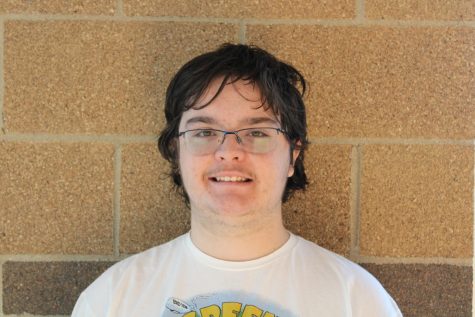
Ryan Dallas is a Senior. He enjoys watching movies and tv shows, writing, and hanging out with friends. He is excited more than ever to write movie reviews as well as broaden his journalistic abilities.

Campbell Goter is a Junior. She enjoys dancing and painting. She is on the dance team and is looking forward to stepping out of her comfort zone and trying new things this year.
You can contact her at [email protected]

